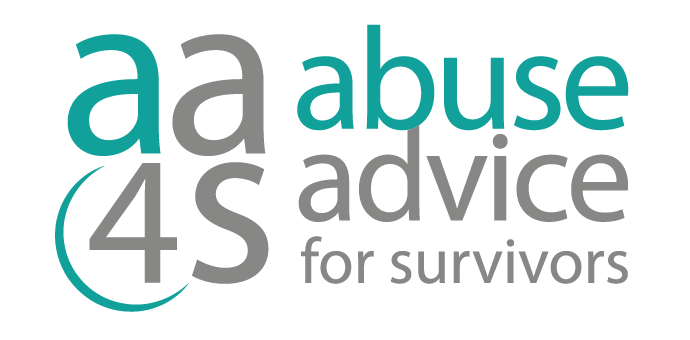QUESTIONS & ANSWERS
Compensation claims originating from acts of abuse are typically complex, with several legal complications.
The first stage is to determine who the claim for compensation should be made against (the Defendant). In situations involving abuse in Residential Care Facilities, such as a Children's Home, the claim is frequently filed against the body responsible for maintaining the Care Home, such as a Local Authorities, a Charity, or a Religious Institution. Typically, such a claim would be made on the grounds that the entity in charge of administering the Home failed to effectively care for the child or adult in their care.
In other cases, compensation claims are frequently filed against individuals who have committed acts of abuse, usually outside of a residential care setting, for example, in the family home.
All civil claims (Civil Law) for compensation must first show how the compensation claim will be supported. The solicitor will then strive to acquire as much evidence as possible to help substantiate the claim and will arrange for the assistance of medical specialists so that the claim's value may be determined.
A formal legal claim is filed in Court if it is deemed acceptable to do so. In most situations, the matter does not need to progress to a final Trial and in many cases compensation claims are handled "out of Court". If a matter proceeds to trial, the person presenting the lawsuit (the Claimant) would normally be required to give evidence in court as a witness, unless the person initiating the case was unable to give evidence, for example, due to a handicap.
I can provide discreet and expert advise on the merits and potential dangers of filing a compensation claim.
Fill out our contact form to get in touch with us.
Problems along the way
Although no abuse is tolerated, not every compensation claim will be successful for a variety of reasons.
The Legal Aid Agency chooses whether to assist in the funding of compensation claims. In contrast to charges of "negligently caused" injuries, the Agency will only authorise public support in circumstances involving an alleged attack or purposeful maltreatment. Claims alleging assault or abuse by a public servant may well be brought against the responsible Authorities that employs him or her as well as or instead of the individual. The legal claim against the Authority may be based on carelessness, but such claims are not barred from funding since the Agency considers whether the injury was caused negligently or intentionally. For the time being, Legal Aid is still accessible for many abuse claims when the party qualifies financially.
In a substantial number of situations involving abuse, particularly child abuse, the abuse survivor is unable to talk about the abuse or seek professional help until many years after it occurred. This is often twenty or thirty years after the assault occurred. In legal terms, this can frequently cause significant difficulty in pursuing compensation claims because the law currently does not sufficiently account for the length of time it takes a person to first reveal the abuse to someone else.
Nonetheless, in many circumstances involving compensation claims in the Civil Courts, the Courts frequently have discretion to enable a person to submit a compensation claim even though the claim is typically outside of the legal time limits.
When a compensation claim is made against an individual rather than his or her employer, issues can often occur if that particular Defendant does not have adequate financial resources to pay compensation to the person making the claim. It would be imprudent to pursue a compensation claim against the individual under such circumstances. Yet, a claim for Criminal Injuries Compensation may still be viable.
To reduce the possibility of being unable to pursue a compensation claim, it is critical to receive adequate legal advice on any proposed compensation claim as soon as feasible. The same is true for claims for Criminal Injuries Compensation.
All of the aforementioned challenges can provide several legal obstacles to a person seeking compensation in the Civil Courts. If a case does not succeed, this can sometimes lead to disappointment or a sense of injustice. Many of the obstacles, however, may easily be overcome with the correct competent legal advice. It is always crucial to obtain the correct legal guidance at the earliest feasible moment.
I can provide discreet and expert advise on the merits and potential dangers of filing a compensation claim.
Fill out our contact form to get in touch with me.
The law provides compensation for physical or psychological harm. The amount of compensation you will receive is determined by a variety of variables, including how it has affected your life, whether you may require additional support in the future, and how much money you have lost or will lose as a result.
We seek medical specialists to write a report explaining the injury suffered so that we can value your claim. When we obtain the medical report, we will evaluate your case and give you a better sense of how much compensation you may receive. We will do everything in our power as experienced abuse solicitors to obtain the highest amount of compensation available to you.
We can provide discreet and competent advise on the merits and potential hazards of filing a compensation claim.
Fill out our contact form to get in touch with us.
Although it is difficult to turn back the clock and avoid pain, filing a legal action can often help to ensure that other individuals do not suffer in the same way.
- Compensation claims can assist a family cope with the pain, anguish, and distress caused by abuse, misuse of authority, and incompetence.
- Solicitors can be quite helpful in the survivor's healing process. The solicitor may be the first person to hear their story and support it by agreeing to represent them.
- For many, receiving compensation is the only way to acknowledge that what happened to them was wrong.
- For many, it is just realising that what they had to say was true and that their troubles were not of their own making.
- Compensation can help survivors rebuild their lives and cope with recurring memories. Compensation may also be beneficial in receiving suitable counselling and psychotherapy to help with their treatment. By effectively pursuing actions against organisations, public entities will be held accountable and ensure that they will follow their general duty to act within their powers, follow correct procedures, and not act arbitrarily. In some circumstances, speaking up about the abuse may even assist to reform the legislation, benefiting the public as a whole.
I can provide discreet and expert advise on the merits and potential dangers of filing a compensation claim.
Fill out our contact form to get in touch with me.
A compensation claim is made by suing the perpetrator of the abuse or those legally responsible for the abuse, such as the Local Authorities. 'The Claimant' is the person who files the compensation claim. The person being sued is referred to as the Defendant’. The process of filing a claim is known as litigation.
The Claimant files a claim by submitting to the court a 'Claim Form' (previously a 'writ' or a'summons') outlining the facts of the case and the reasons for filing the claim. The Claimant must pay a fee in order to file a court case. The charge is determined by the amount of the claim. (If the Claimant wins the case, the Defendant will normally have to pay the Claimant's court fee in addition to paying compensation and usually the costs involved in bringing the action).
When the court receives the Claim Form from the Claimant, a copy of the Claim Form will be served on the Defendant’. The Defendant’ will next be compelled to respond to the Claim by filing either a formal written 'Admission' or, more commonly, a written 'Defence' with the Court.
When the Court gets the Defendant’s response to the claim, it will decide how the case should proceed, eventually leading to a trial.
See the question above "What is involved in obtaining compensation?" for the procedure relating to claims to the Criminal Injuries Compensation Authority.
I can provide discreet and expert advise on the merits and potential dangers of filing a compensation claim.
While recent changes in the law have aided in the speeding up of the compensation system, the civil court process can still take a very long time, especially when complex issues or facts are involved, and in the case of child abuse actions, where allegations of abuse often date back many years and can require tracing many records.
For many claimants, the procedure can be lengthy and intimidating at times. This handbook is meant to assist in explaining the complex procedures so that you have a better knowledge of the entire process. Nonetheless, it is critical to always obtain legal counsel and to ask the solicitor any issues that arise along the road. Understanding the system and procedures better would assist to reduce frustration and confusion.
I can provide discreet and expert advise on the merits and potential dangers of filing a compensation claim.
There will be a legal fee if you seek legal advice, aid, or representation. In general, there are three ways to pay for legal fees:
(a) Public funding (Legal Aid)
a) Private financing
(c) 'No Win, No Fee' contracts.
(d) Legal Expenses Insurance
Solicitors will bill clients on an hourly basis. The ultimate cost of the case will be determined by the amount of work required, with a complex case costing more than an easy case. The majority of child abuse cases are complex, involving inquiries into documents and incidents stretching back many years. This can make bringing cases to court highly expensive.
In addition to the solicitor's fees, every case will normally contain expert fees from psychiatrists, doctors, barristers, and sometimes other specialty specialists.
The losing party in a litigation is required by law to pay the victorious side's legal fees. In very few cases, which are too technical to explain in this article, an individual who brings a case and loses will be obligated to pay the Defendant's legal costs in addition to his/her own legal costs.
It is critical that anyone considering going to court is well aware of the costs and consequences.
Public financing / Legal Aid is currently available for any child abuse compensation claim when the claimant is financially entitled and the case has legal validity. See the Government's Legal Aid Handbook for further information.
If a person does not qualify for Legal Aid, the solicitor will evaluate whether it is suitable to engage into a 'Conditional Fee Agreement' (a 'CFA'), also known as a 'No Win, No Fee' arrangement.
It is critical that the terms of the agreement be completely understood before engaging into such an agreement. Simply put, if the case is lost, the person initiating the claim will not have to pay his or her solicitor's fees. They may still have to pay for expert fees, barrister fees, and possibly the Defendant's legal fees. It is occasionally prudent to take out an insurance policy when entering into a conditional fee arrangement with the solicitor to cover the possibility of having to pay the opponent's fees.
Existing insurance policies for house contents, cars, health, and so on may incorporate legal coverage for specific sorts of cases. It would be quite unusual to find coverage for child abuse claims. But, it is worth examining any insurance you have to see if the definition of cover includes abuse advice.
The other option is to pay the solicitor on a case-by-case basis as the case progresses. This will entail paying the solicitor on a regular basis when a bill for work done is sent, or in advance of certain charges, such as medical reports or barrister's fees.
I can provide discreet and expert advise on the merits and potential dangers of filing a compensation claim.
The law governing compensation claims originating from child abuse can be highly complex, which is why meeting with the correct solicitor is critical. Even before filing a compensation claim, there are numerous possible traps and obstacles to overcome.
The legislation specifies special procedures that must be followed before bringing a compensation claim to court (Pre-action Protocols), as well as even more strict procedures that must be followed once litigation has begun. Furthermore, the law is continually evolving. A solicitor who specialises in pursuing compensation claims for victims of child abuse is ideally equipped to counsel and represent the victim, guiding them through the legal quagmire.
Finding the appropriate lawyer is not always simple. Most solicitors specialise in a specific area of law. As a result, a divorce or conveyancing lawyer is unlikely to be the best person to assist a child abuse victim on the legal system.
Similarly, while most 'personal injury' solicitors specialise in compensation claims stemming from vehicle accidents or workplace mishaps, a claim for compensation arising from child abuse presents its own unique set of obstacles and hazards.
I co-founded the Association of Child Abuse Lawyers (ACAL). I comply with their code of behaviour.
I've had specialised training in dealing with survivors of abuse in an empathic manner. We may be the first person an abuse victim tells about the abuse. As a result, skill and care are required to guarantee that any distress is minimised.
I can provide discreet and expert advise on the merits and potential dangers of filing a compensation claim.










